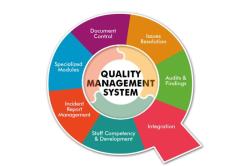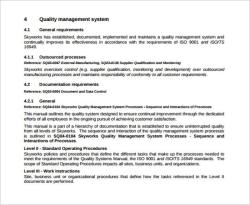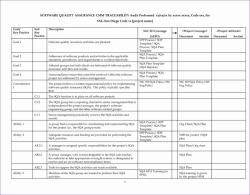What is the purpose of a pro-active approach towards quality?
A proactive approach towards quality management aims to prevent issues, identify potential risks, and continuously improve processes before problems arise. The purpose of this proactive stance is multifaceted:
Preventing Issues: By anticipating potential problems or defects in products, services, or processes, a proactive quality approach aims to prevent these issues from occurring in the first place. This helps in avoiding disruptions, reducing costs associated with rework or defects, and maintaining customer satisfaction.
Continuous Improvement: Proactively focusing on quality enables organizations to continuously improve their processes, products, and services. By identifying areas for enhancement before problems emerge, companies can refine their operations, enhance efficiency, and strive for higher quality standards.
Risk Mitigation: Anticipating and addressing potential risks in advance allows organizations to mitigate these risks effectively. It involves assessing and managing risks related to quality, compliance, safety, and other factors that could impact the organization's performance or reputation.
Enhanced Customer Satisfaction: Proactive quality management helps in meeting or exceeding customer expectations by consistently delivering high-quality products or services. Satisfied customers are more likely to be loyal and advocate for the brand.
Cost Reduction: Identifying and resolving quality issues early in the process helps in avoiding rework, recalls, warranty claims, and customer complaints, thereby reducing costs associated with rectifying defects.
Building a Quality Culture: A proactive quality approach fosters a culture of quality within an organization. It encourages employees to take ownership of quality, participate in problem-solving, and contribute to continuous improvement initiatives.
Compliance and Standards: Proactively adhering to quality standards, regulations, and industry best practices ensures that the organization remains compliant with legal requirements and industry standards.
In essence, a proactive approach towards quality management helps organizations not only in preventing problems but also in striving for excellence, fostering a culture of continuous improvement, and meeting or surpassing customer expectations, ultimately contributing to long-term success and sustainability.
In quality management, a proactive approach prioritizes preventing problems and improving processes before they lead to defects or customer dissatisfaction. This contrasts with a reactive approach, which focuses on addressing issues after they have occurred. A proactive approach is crucial in quality management for several reasons:
Prevention of Problems: By identifying and addressing potential issues early on, proactive quality management can prevent problems from arising in the first place. This saves time, money, and resources that would otherwise be spent on correcting defects or dealing with customer complaints.
Continuous Improvement: A proactive approach fosters a culture of continuous improvement, where organizations constantly seek ways to enhance their processes, products, and services. This leads to a cycle of identifying opportunities, implementing changes, and measuring results, resulting in ongoing quality improvement.
Risk Reduction: Proactive quality management helps organizations identify and mitigate potential risks that could impact product quality, customer satisfaction, or operational efficiency. By addressing these risks early on, organizations can reduce the likelihood of costly mistakes and maintain a high level of quality.
Customer Satisfaction: By prioritizing problem prevention and continuous improvement, proactive quality management leads to higher customer satisfaction. Customers appreciate receiving products and services that are free of defects and meet their expectations, fostering loyalty and brand reputation.
Employee Engagement: A proactive approach to quality management encourages employee engagement, as it empowers employees to identify and address potential problems. This involvement fosters a sense of ownership and pride in quality, motivating employees to contribute to continuous improvement efforts.
Competitive Advantage: In today's competitive markets, a proactive focus on quality can provide a significant advantage. Organizations that consistently deliver high-quality products and services attract and retain customers, gain a reputation for excellence, and achieve sustainable growth.
In summary, a proactive approach to quality management is essential for preventing problems, promoting continuous improvement, enhancing customer satisfaction, engaging employees, and gaining a competitive edge. By prioritizing quality throughout the entire process, organizations can achieve sustainable success and establish a reputation for excellence.





